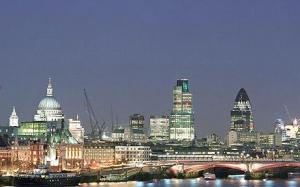
It was a pleasant surprise to read that the British Embassy’s Shared Service Center in Taguig now serves 40 countries in the Asia-Pacific region, the Middle East, South Asia (including India) and Central Asia and that the British Government has been saving 1.3 million pounds (P95.9 million) a year (“BPO in PH is pride of UK”). Brititsh Deputy Ambassador to the Philippines Trevor Lewis also lauds the efficiency of services achieved through the standardization of processes.
Other diplomatic offices are also looking at the Philippines in order to follow suit. But that is the more obvious upshot of the success of the British Embassy.
UK Regulations, Philippine Cost
This development should also prove interesting for companies in the UK’s financial services industry. In the same manner that the UK diplomatic office finds relief in being able to send all the work it could not handle within the UK to the Philippines, the UK’s financial services firms would do well to explore whether the post-financial crisis pressure to upgrade its risk and regulatory compliance capabilities can be served by creating service utilities in the Philippines, e.g. vanilla AML compliance activities such as the clearing of “false positives”.
Another offshoring opportunity may be the centralization of core transaction processing for financial securities. Many American banks, including JP Morgan Chase has started debt and equity securities servicing from its Manila service centers. HSBC has also been known to be growing its securities operations footprint in the Philippines, thus taking the lead for the UK-based banks.
Cluster effect
The UK financial services industry employs about 4% of the British workforce but contributes a 11.6% of the government’s tax receipts. The industry contributes the largest financial services trade surplus in the whole world. Due to its economic significance, the Corporation of London underwrites periodic studies into the competitiveness of London as a Global Financial Center (GFC). Apart from cost competitiveness, the September 2013 (14th edition) Global Financial Centres Index Report cites Human Capital (particularly greater access to talent) as perhaps the most important among the 5 areas of competitiveness among financial centers. Tapping into the Philippine talent pool via offshoring is worth a good long, hard look. The same report ranks the Philippines at No. 64 among 80 identified GFCs, up 8 rungs from the 13th edition, a little below Bangkok (No. 58) but above Mumbai (No. 72). Further the report assesses the profile of each financial center based on the dimensions of connectivity, speciality (depth) and diversity (breadth). Manila is classified as a local specialist.
To be sure, offshoring is not entirely a new idea to UK institutions that strive not only to remain cost-competitive but also to tap into new talent pools. With its expected “demographic sweet spot” coming by 2015, a second look at the Philippines cannot be more timely. The case for building “shadow capability” in Manila for the work already outsourced to India is a “slam dunk”, as we basketball crazy Filipinos would say. Beyond that, we have seen close to phenomenal growth in Finance and Accounting and other related back-office work into the Philippines, particularly by financial services firms. This includes a diverse group from AIG to Manulife, from Citibank to Wells Fargo and Bank of America, from Thomson Reuters to Financial Times, from Sunlife to PricewaterhouseCoopers. This is creating a compelling, positive “cluster effect” for those types of competencies – a trend recognized by consulting firm Elix – IRR as early as 2012.
Paging Barclays, Lloyds, Royal Bank of Scotland, and Standard Chartered!
Positive connections
Philippine Airlines is now offering direct flights to London again after a 15 year absence. To promote the new route, PAL is offering some attractive discounts that are awfully hard to pass up. On a personal note, the wife and I will be bringing the kids on a UK trip this spring (via PAL, of course). Even this early, the family is already excited to visit the home of Her Majesty, Big Ben, Stonehenge, and Harry Potter.
I do hope that this development will also be a harbinger of closer economic ties between the Philippines and the UK , among other things through more offshoring. The British Philippine Outsourcing Council identified the lack of a direct flight between the two countries as a disadvantage of Manila after all. One positive comment about offshoring to the Philippines is that the connectivity of the outsourced processes to the parent organization is, happily, not lost. This is undoubtedly due to the strong local culture towards customer care.
Travel and offshoring – wellspring of our growing, positive connections with the UK!
Curious things while writing this post….
It is interesting that the Corporation of London, as early as its 2005 Study on the City of London as a Global Financial Center where it ranked various cities as “alpha”, “beta”, or “gamma” cities, names Manila as a gamma city but is silent about Mumbai. It is one of those curious things similar to the fact that, according to Wikipedia, basketball is included as a sport in the 2018 Commonwealth Games but football is not.


